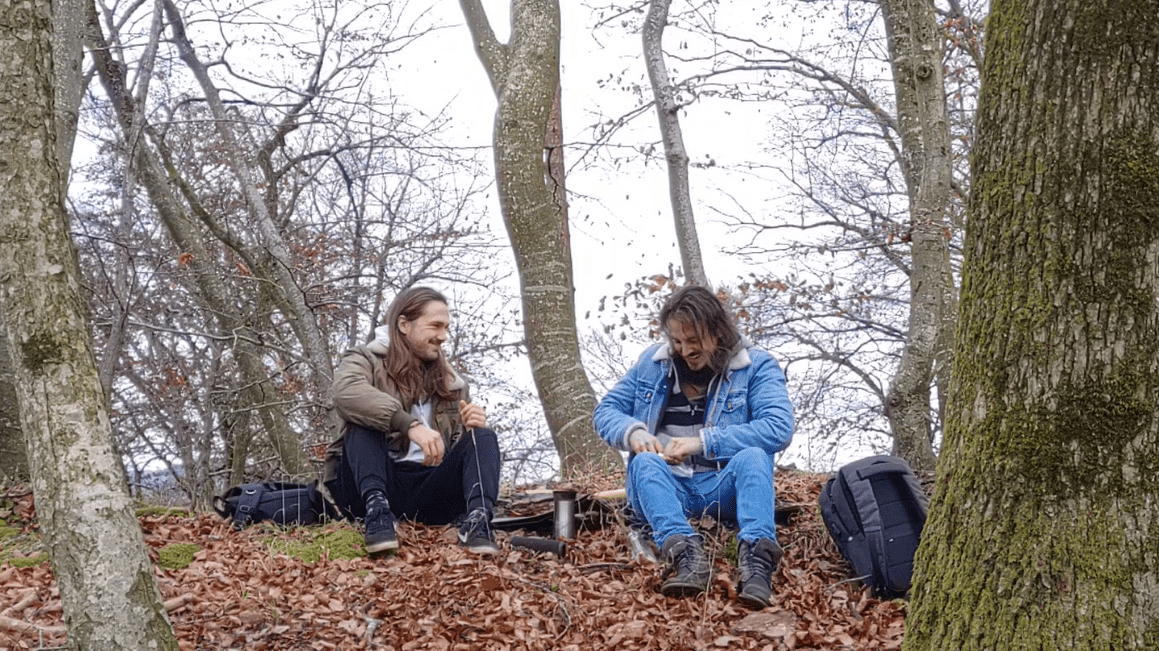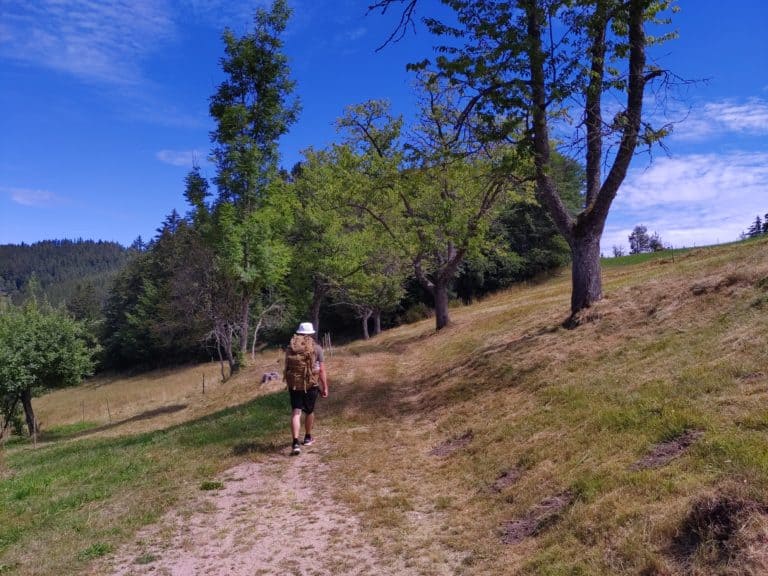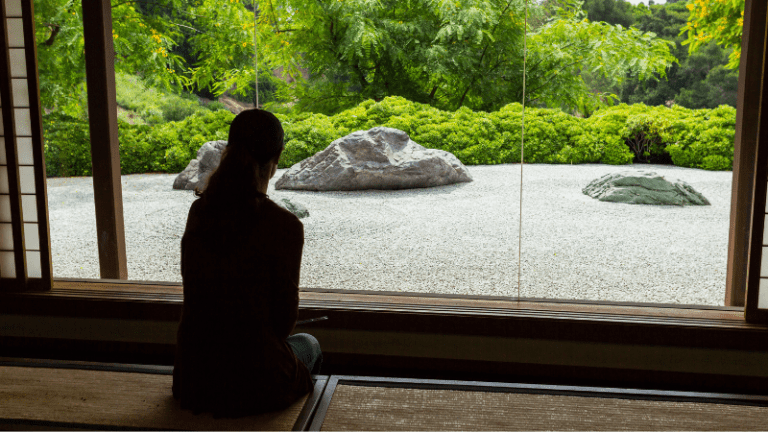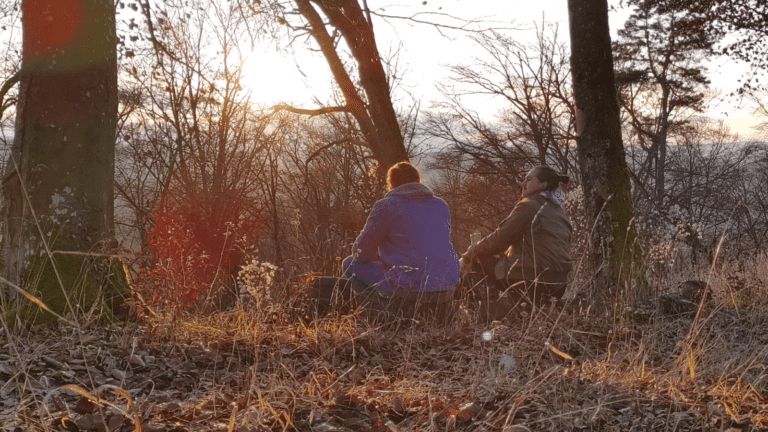Buddha On Happiness and Personal Responsibility
"You yourself must strive.
BUDDHA
The Buddhas only point the way."
In this quote from Gautama Buddha - the founder of Buddhism - it is made clear why we cannot rely on any kind of guru to enlighten us. To understand this quote completely, let me tell you about my younger self:
I remember well how it dawned on me as a teenager that I wanted a more fulfilling life. I had some phases where I was very unhappy - like countless people and maybe like you too.
And it wasn't long before I found myself rattling through dozens of motivational and self-help coaches. But somehow the desired result failed to materialize.
At some point, I stumbled across a meme of a cartoon character smiling contentedly and holding a glass that read "Happiness. A second, disappointed, asked where she had gotten it, to which the reply followed: "I made it myself."
(summarized in German: "I made my own luck").
I was aware that the message was quite true. And excitingly, I had the feeling that I was already doing that: creating my own happiness.
But the truth was different:
I hoped by just consuming audio books, Ted Talks, articles I could create my happiness.
However, I missed the second half of the equation for happiness. In this context, the equation looks like this:
Acquire knowledge about happiness + apply knowledge about happiness = happiness
When you see it right in front of your nose like this, it may seem very obvious. But that realization can be a long time coming. And that was the case with me.
A good example of this lack of understanding, is the following quote: "Knowledge is power." or in the original:
"Scientia potentia est"
Thomas Hobbes
Did you know that...
this quote is often mistakenly attributed to Sir Francis Bacon? But the first known mention of the exact wording appeared in Hobbes' Latin edition of Leviathan (1668).
Heard of it? Probably.
BUT: it is not sufficiently precise. Because knowledge is not automatically synonymous with power. Correct would be:
"Knowledge is potential for power."
If you don't apply the knowledge, it remains unused potential. And that was exactly where my problem lay.
This misconception is also addressed by Jim Kwik in his book "Limitless", in which he teaches methods to learn better learning patterns - an incredibly valuable book (if you apply what is taught, of course).
So now let's look at the two components of the above equation:
Acquire knowledge about happiness
It is essential to use the knowledge that mankind has already accumulated. We are in the pleasant position that an enormous number of people have dealt with the subject of happiness before us.
There are countless works about the meaning of life, overcoming problems and fulfillment.
If you already know our blog, you will have read a lot about these personalities. It is not for nothing that we deal with philosophical schools and great thinkers.
We try to decipher the often hidden meaning behind their words and make them less difficult and cumbersome to explain.
By the way, have you ever wondered why philosophers express themselves so unclearly? You can get the answer here.
If one did not make use of the accumulated knowledge, it would be like trying to reinvent the wheel every time one is needed.
Will Smith once mentioned in an interview that we couldn't have any problems that other people haven't had before us and we should take advantage of their experience:
"...For reading: there have been gazillions of people that have lived before all of us. There's no new problem you could have-with your parents, with school, with a bully. There's no new problem that someone hasn't already had and written about it in a book."
Will Smith on running and reading
So, to return to my initial narrative, it was not wrong for me to seek and absorb this knowledge. It was just not the complete process, because hearing, watching and reading about the knowledge of genius people is not enough, because it is something passive.
But: it sets the process in motion. Blind actionism would have given me no basis for changing my actions, and chances are that no particularly useful version of myself would have emerged.
So we note:
- It is important to accumulate knowledge about happiness
- Works of philosophical schools and great thinkers are particularly suitable
- It is important to start with this part of the equation
It is very individual whether you throw yourself completely into the subject and spend several hours a day with the Stoics like Marcus Aurelius, Daoist wisdoms and Co. or only invest a quarter of an hour here and there.
If you are at the beginning of your philosophical journey, here is an article for you that should give you a good overview:
The Best Philosophies for Beginners (Everything You Need to Know)
Honestly, both can get you where you want to go and it ultimately has to be a fit for you, but here's the mix we recommend as a baseline so you'll make good progress:
- Invest a little time each day reading/listening about the topics of happiness and contentment: It should be at least 15 minutes (at a stretch), because your brain doesn't really start to absorb the topic. If possible, aim for 45-60 minutes (at least every few days).
- Find your way around the subject matter with explainer videos: If you're looking for a YouTube playlist that will get you started easily, we have one for you.
- Get the book "Don't Worry - Live!" by Dale Carnegie. It is one of the most famous and practical books to change your thinking and go through life better. The reason is that you should not only consume video content, but also read, because reading stimulates the brain better (this is because reading is more active than watching).
Note: Other valuable books are "Ikigai" by Hector Garcia and Francesc Miralles, "Zen and the Art of Happiness" by Chris Prentiss, "Tao Te King" by Lao Tzu, "The Book of Five Rings" by Miyamoto Musashi and "The Way of Zen" by Alan Watts.
Okay. That's it for the first part of the equation. With these points you are best prepared to get a profound overview of this topic in a relatively short time. Now let's look at the second part of the equation.
Apply knowledge about happiness
Now comes the part that had not only eluded me for a long time, but is also crucial to success or failure.
You also need to apply the knowledge. Although this part is the more challenging, the explanation will be shorter than the previous one - a bit at least.
Why is this part the more difficult? Because this part has to be done by yourself. It is important to make it as easy as possible for yourself. For this, it is a good idea to form certain habits from the beginning. This way it won't be really hard for you and - this is very important - it will be fun.
Here are some principles:
- When you are acquiring new material, be sure to take notesIf you put something in your own words, it will be easier to remember. Also, notes are extremely helpful for the next step.
- Repeat what you have learnedYou should repeat what you have learned as often as possible - at least 4 times (1x right after you have learned something new, 1x the next day, then 1x after one week and 1x after two weeks).
- Start thinking your own thoughts: This can be either about what you hear or read, or about real or fictional situations point also here you should make notes (that it is for one nice for you and, sometime to look back on a collection but also to be able to observe your changes)
- Correct your actions when you notice wrongdoing: So, actions that were detrimental to your happiness - this can be, for example, an action of your own that went against your moral compass, self-deception (in whatever form, or whatever). Do it now.
Note: These principles are very closely intertwined and therefore cannot really be separated, but once you start acting on them you will inevitably make progress.
If you are at the beginning of your philosophical journey, here is an article for you that should give you a good overview:
The Best Philosophies for Beginners (Everything You Need to Know)
So, that's the active learning, but there are a few other points that are extremely powerful - precisely because they are so banal. They concern the rest of everyday life:
- Go out into the fresh air every day: I have a tendency to like to get lost in my projects and since many of them take place indoors, it often happened that I got bogged down. I started to divide my errands (like shopping) into many small units, so I get fresh air every day.

- Greet other people: As a rather introverted type, it's easy for me to stick my headphones in when I'm out and about and stubbornly go my own way. But since life also includes other people, I have started to greet them - whether known or unknown - as soon as their eyes cross.
- Talk to strangers: I have also made a game out of this. The objective is to talk briefly to someone every time you go for a walk or do something. Ideally small talk, but a quick compliment is okay too (giving compliments is very enriching for your life anyway - but they have to be sincere). If you live in a sparsely populated area, you can wonderfully join online groups.
- Be physically active every day: I have to admit that this is currently my biggest shortcoming and I still have room for improvement here. By the way, stretching was a wonderful way for me to get back into a routine for physical action. Maybe it's something for you, too.
Did you know that...
the word Shortcoming from Latin word mancus and means as much as incomplete?
- Practice some kind of meditation every day: There is not only Mindfulness Meditation (which is called Zazen and comes from Zen Buddhism), but also many others. You can see them for example here on healthline.com explained.
- Do what suits you best: You should definitely find an activity that you are good at, that brings you money, that you are passionate about, and that benefits the world. If you are not yet aware of such an activity, you should read this article of ours, in which we the japanese principle for fulfillment Ikigai treat.
= Happiness
With this, we have covered the entire equation. Whether you will become enlightened by your own efforts and by the Buddhas themselves showing you the way, we do not know. But we are quite sure that you will lead a happier life. That much is certain.
And finally: don't put yourself under pressure and take your time. It may sound trite, but: The way is the goal. Happiness is not at the end of your journey, but will meet you along the way if you keep your eyes open.
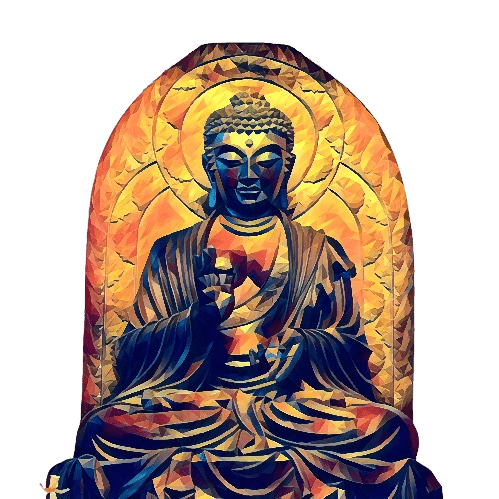
Who and how Buddha really was you can learn here

